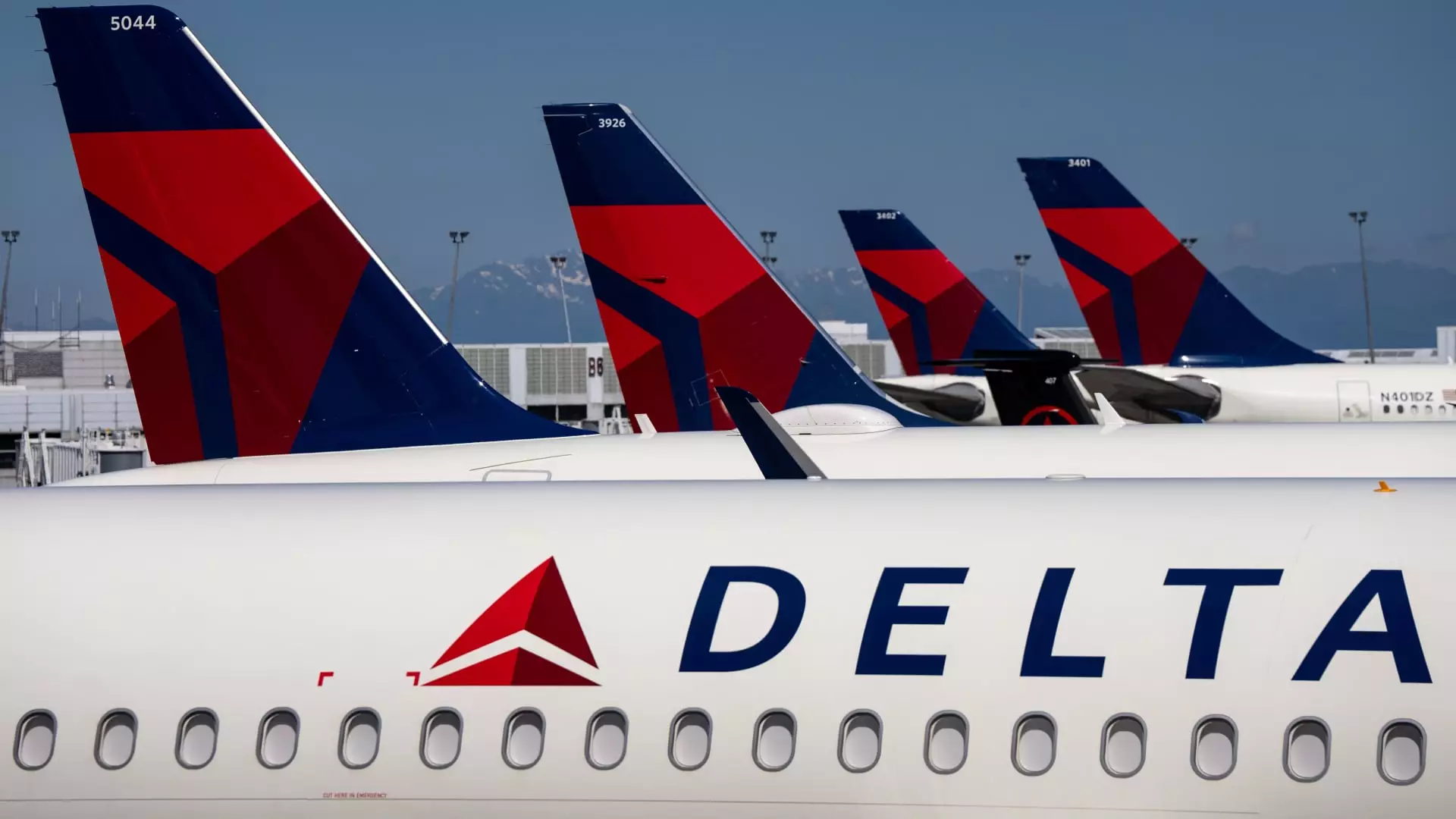Delta Air Lines has long been regarded as a benchmark for success in the U.S. airline industry. As the largest and most profitable carrier, expectations frequently hover over its quarters like a hawk. However, recent revelations reveal troubling indicators that may cause one to wonder if this titan of aviation is sitting atop a house of cards. With the sudden downturn in bookings and revenue projections, a reflection on Delta’s current plight unveils how fragile stability can be in volatile economic conditions.
Political Crosswinds and Economic Headwinds
CEO Ed Bastian, who often epitomizes optimism, recently likened President Trump’s trade policies to a caterpillar emerging from a cocoon—while it may look beneficial, it might end up as a moth that devours the industry. For Delta, the butterfly effect has manifested in shrinking consumer confidence and faltering corporate travel demand. Bastian’s acknowledgment of the slower economic climate may hint at a deeper crisis looming for the airline sector, complicating what has lately become a labyrinth of shifting government policies and unpredictable markets.
Delta’s forecast for the second quarter depicts a delicate balance—projecting revenue could either expand or retract by 2%. Analysts, famished for growth, anticipated a modest increase of 1.9%, but instead, they must digest the bitter news of stagnation. Can an organization so closely tied to consumer trust survive when the very foundation begins to erode? The danger of relying on optimistic predictions without considering consumer sentiment is akin to flying a plane without constantly checking the airspeed.
The Diminishing Glow of Travel Demand
Amidst these disheartening factors, Delta, once pictured as a conqueror of the skies, is seeing its flight plans dwindle. In a previous era, steeped in optimistic projections, Delta’s ambitions to grow by 3% to 4% in passenger capacity in the latter half of the year may have sounded reasonable. Today? Flatlining expectations paint a stark picture of decline.
The message is clear: as corporations reassess their travel policies due to governmental cutbacks and pre-existing fears of recession, the impact is immediate and profound. Business trips are being reconsidered; leisure travel is also under pressure. Thus, what was once perceived as solid income streams are now vulnerable, leaving Delta with no choice but to protect its margins and cash flow.
Resilience in the Eye of the Storm
Interestingly, Bastian’s notes that international and premium travel segments display a degree of resilience, creating a silver lining amidst dark clouds. This data could reflect a real hunger among certain demographics for quality experiences rather than chains of budget flights. Still, the corporation’s over-reliance on high-end travel could prove precarious. When economic uncertainty prevails, even the wealthiest individuals may reconsider expenditures on luxury flights.
Additionally, Delta’s first-quarter earnings posted a respectable $240 million net income, but one must question the sustainability of this surge when contrasted with a backdrop of eroding confidence. Earnings per share, while exceeding expectations, must be viewed through the lens of systemic shifts rather than isolated victories; have they set a trap for themselves, laying traps of debt in an environment that rewards conservatism?
Airlines in Turmoil: A Broader Perspective
Delta’s plight is further mirrored in the experiences of its counterparts, including American Airlines, United, and Southwest, all grappling with shifting market conditions. A wave of diminishing projections is resonated throughout the airline industry, each company appearing to huddle together, hoping not to be the next casualty in a tumultuous market.
The reason behind the urgency and fear to meet anticipated earnings should serve as a wake-up call for stakeholders. They must realize that projecting growth without flexibility limits an airline’s capacity to adapt to rapid environmental change. The urgency in reevaluating strategies and robust fiscal management cannot be overstated.
As Delta approaches the upcoming fiscal quarters, expect heightened scrutiny from investors and analysts alike. They must show not just strength but adaptability in an ever-evolving landscape. The question remains: Will Delta dance gracefully through the storm, or shall it falter and fall short, firmly entangled in its own missteps? In this ever-shifting industry, the stakes are higher than ever before.

